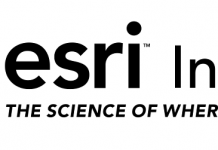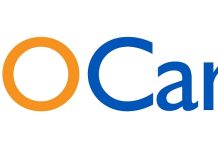
C Spire is expanding financial support for the Base Camp Coding Academy, a non-profit charity in rural north Mississippi that provides under-advantaged youth with fast-paced, focused vocational training in computer programming to support the technology needs of local and regional employers.
Equipping more young people with computer science skills is a key part of the broader C Spire Tech Movement initiative designed to move communities forward through technology with a focus on broadband access, workforce development and innovation.
The non-profit C Spire Foundation is increasing its annual support by 450 percent as Base Camp concludes its initial three-year inaugural project and expands its vocational technology training program. Growth in student population, curriculum and facilities – funded by corporate and individual donors – are all planned for the next phase.
C Spire, a Mississippi-based technology and telecommunications firm, was a founding supporter of the program in 2016. Every graduate of the program, now in its third year, has received job offers from multiple employers in Mississippi and the Mid-South.
Base Camp will graduate its third class in May 2019. In addition to their financial support, C Spire provides mentorship, job shadowing, and employment opportunities for Base Camp’s students. The company has hired nine graduates from the program in entry-level computer programmer jobs during the first two years.
C Spire’s continuing support comes in the form of a three-year sponsorship agreement and on the heels of other recent announcements related to Base Camp growth, including promotion of Sean Anthony to Executive director, a new instructor position and adding John Terenzio as Software Engineer in Residence.
“Base Camp is a true Mississippi treasure,” said C Spire CIO Carla Lewis, who serves on the charity’s advisory board and helped develop curriculum for the program. “With the continuing shortage of qualified workers with a background in computer science in our state, this program and others like it will help us close the gap and meet our workforce needs.”
Workers with a background in computer science are in high demand and short supply in Mississippi. Employers currently have nearly 1,000 unfilled job openings due to the serious shortage of trained, qualified IT workers. The average salary is $70,000 a year, more than double the statewide average. A shortage of over 1 million software developers is expected in the U.S. by 2020.
“C Spire continues to set the bar high for technology and economic growth in Mississippi. They’ve had a tremendous influence in shaping the program and providing career opportunities for these young adults,” said Base Camp co-founder Glen Evans. “We’re excited about the next chapter and thrilled that the partnership will continue to grow.”
Base Camp and similar programs serve as innovative beacons to increase interest in computer science careers, Lewis said. In 2016, only 16 students in the state took the AP computer science exam, but in 2017 the number of students successfully completing the test grew to 105, according to Code.org, a computer science education advocacy group.
Lewis said the company’s support for Base Camp, coding challenges, other public and private programs and a recent partnership with Mississippi State University Research and Curriculum Unit’s Center for Cyber Education are designed to help C Spire deliver on its promise to help create and retain a 21st century technology workforce.
As part of C Spire’s partnership with the MSU Center for Cyber Education, 20 Mississippi high school districts and community colleges are participating in a new pilot program that will use customized curriculum developed from BCCA to “fast track” creation of hundreds of new academic and computer science career opportunities in the state.
Students can earn an Associate’s Degree of Applied Science after two years of specialized course work in high school and just one additional year in community college. More than 150 students in the first year are expected to benefit from this new program and be on track for high-paid, high-demand jobs in computing fields with higher numbers in subsequent years.









